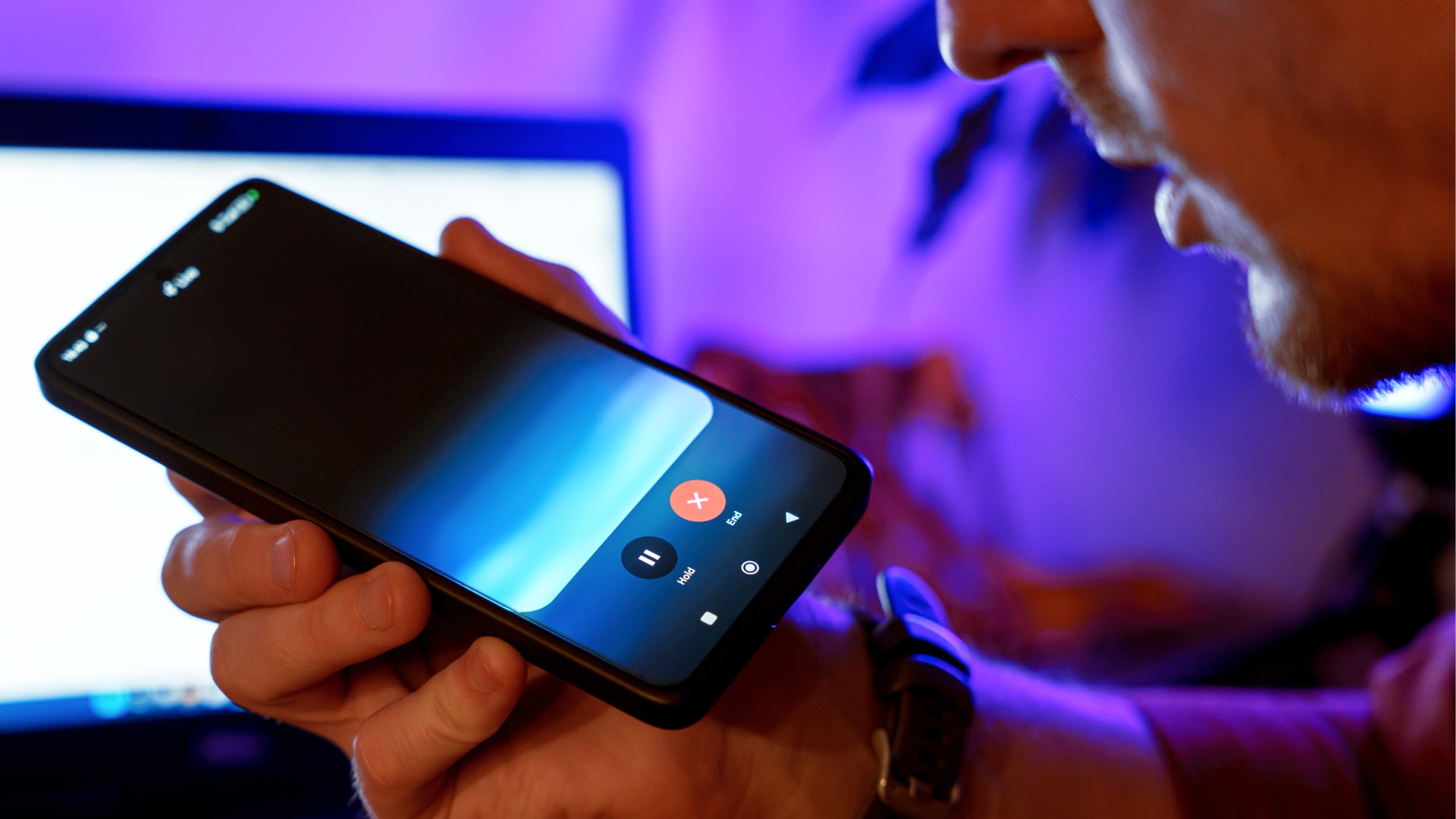iPad Pro vs Surface Pro 8: Which one is best for you?
We pit Apple and Microsoft's flagship tablets against one another to see which is right for you
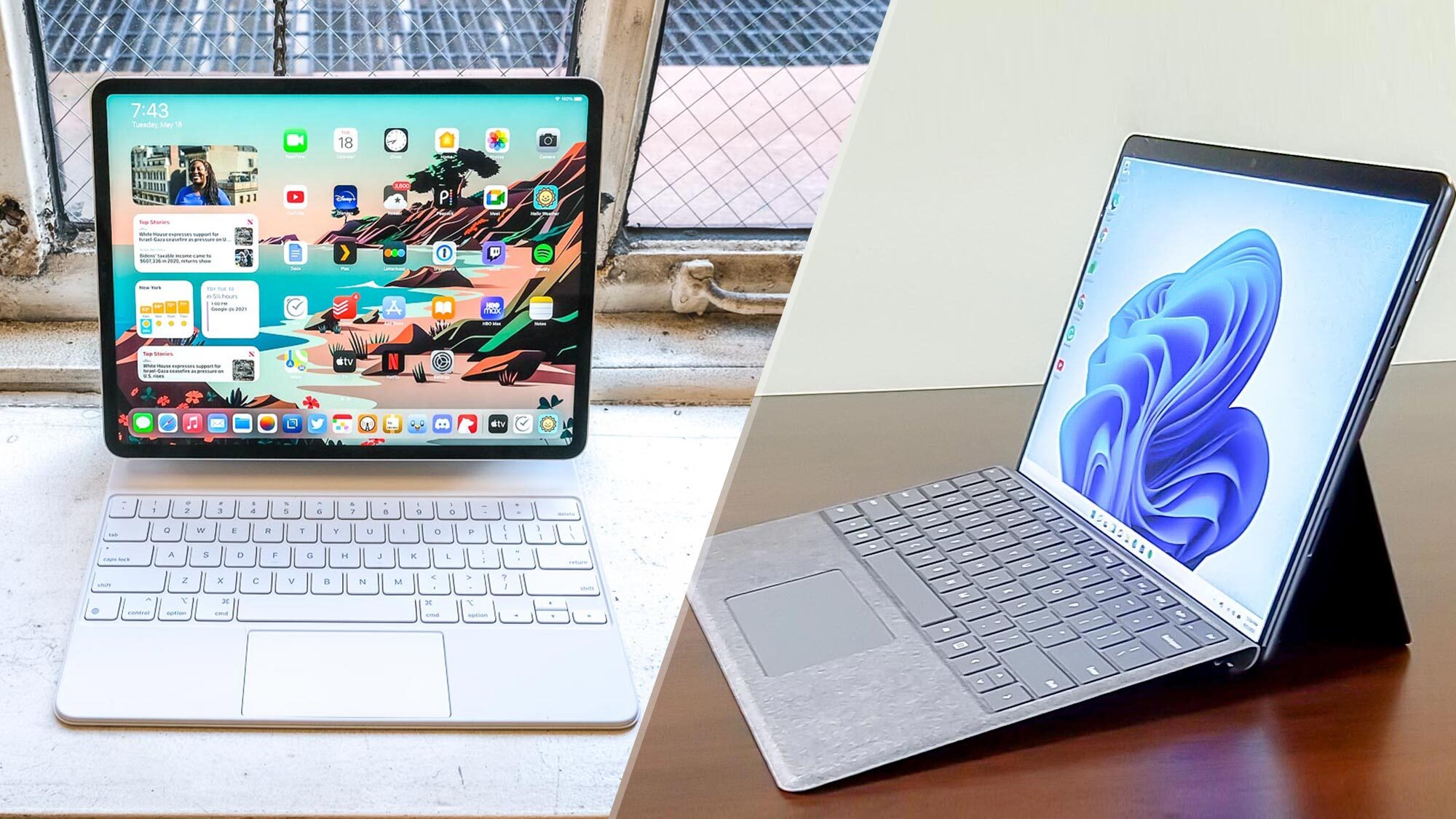
Editor's Note: Microsoft just unveiled a new Surface Pro 9 tablet and a Surface Laptop 5 alongside a new Surface Studio 2+ all-in-one desktop. Keep that in mind as you shop, because new hardware means you can probably get last year's models at a discount. If you're more interested in the new stuff, stay tuned for our full reviews!
The Apple iPad Pro 2021 (12.9 inch) vs Microsoft Surface Pro 8 debate is an interesting one. Each of the respective companies’ flagship tablets offers the key features you’d expect from a modern slate, including portability and intuitive touch-based functionality. The tablets can also serve as decent productivity machines, allowing you to use them as laptops.
Unless you’re loyal (or opposed) to either Apple or Microsoft, choosing between the iPad Pro and Surface Pro 8 isn’t easy. As we said, both slates serve the same basic functions. But one tablet will be more appealing based on its features and price. As such, we’ll go over what each tablet has to offer and see which one is right for you.
So, how do the iPad Pro and Surface Pro 8 compare to one another? Read on to find out.
iPad Pro vs Surface Pro 8: Specs
| Row 0 - Cell 0 | iPad Pro 2021 (12.9 inch) | Surface Pro 8 |
| Starting price | 1,099 | $999 |
| OS | iPadOS | Windows 11 |
| CPU | M1 (16-core) | Intel i5-1135G7 | Intel i7-1185G7 |
| Storage | 128GB, 256GB, 512GB, 1TB, 2TB | 512GB | 1TB (128GB or 256GB removable SSD options) |
| Display | 12.9 inches (2732 x 2048 pixels) mini-LED | 13-inch screen (2880 x 1920) |
| Cameras | 12MP TrueDepth (front), 12MP wide + 10-MP ultra-wide (rear) | 5MP (front), 10MP (back) |
| Wireless | Wi-Fi 6, optional 5G | Wi-Fi 6 and Bluetooth 5.1 |
| Battery life (tested) | 10 hours 48 minutes | 9 hours 6 minutes |
| Size | 11.04 x 8.46 x 0.25 inches | 11.3 x 8.2 x 0.37 inches |
| Weight | 1.51 pounds | 1.96 pounds |
iPad Pro vs Surface Pro 8: Price
The 12.9-inch iPad Pro 2021 (in Silver or Space Gray) starts at $1,099 on the Apple Store, making it $100 more than the previous model. If you want all the speed of the M1 chip and can shave off some screen space and extra features, the 11-inch iPad Pro 2021 starts at $799. 5G connectivity costs $200 extra, frustratingly.
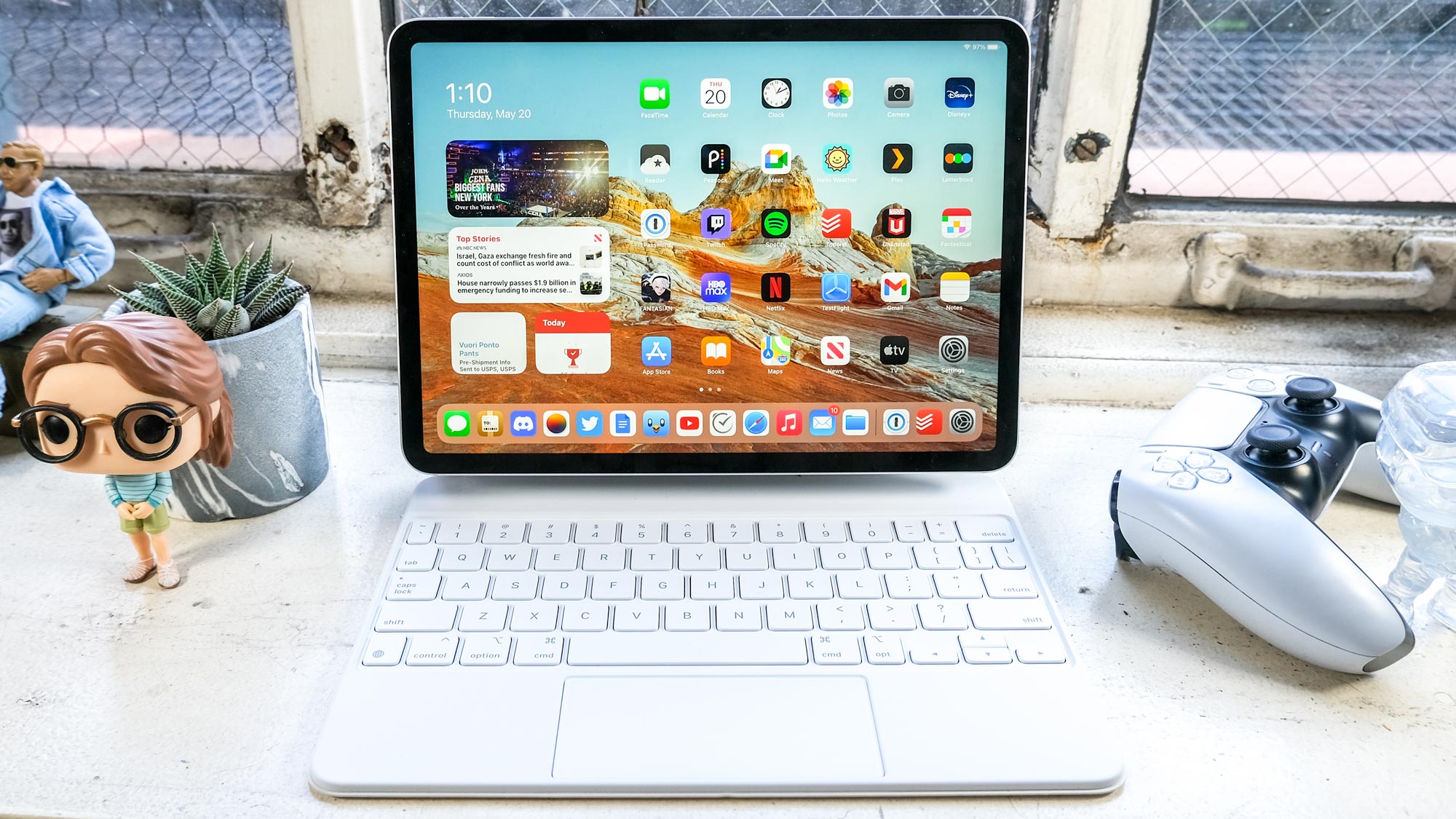
With a Magic Keyboard ($349) and 2nd Gen Apple Pencil ($129), you're at a starting price of $1,577 for the 12.9-inch iPad Pro 2021 — which is a lot.
The Microsoft Surface Pro 8, for comparisons' sake, is currently on sale at the Microsoft Store in two different colors: Platinum or Graphite. The Platinum model has eight different configurations, starting with a $999 base unit featuring an Intel Core i5 CPU, 8GB of RAM and a 128GB SSD. A $2,599 model offers an Intel Core i7, 32GB of RAM and a 1TB SSD.
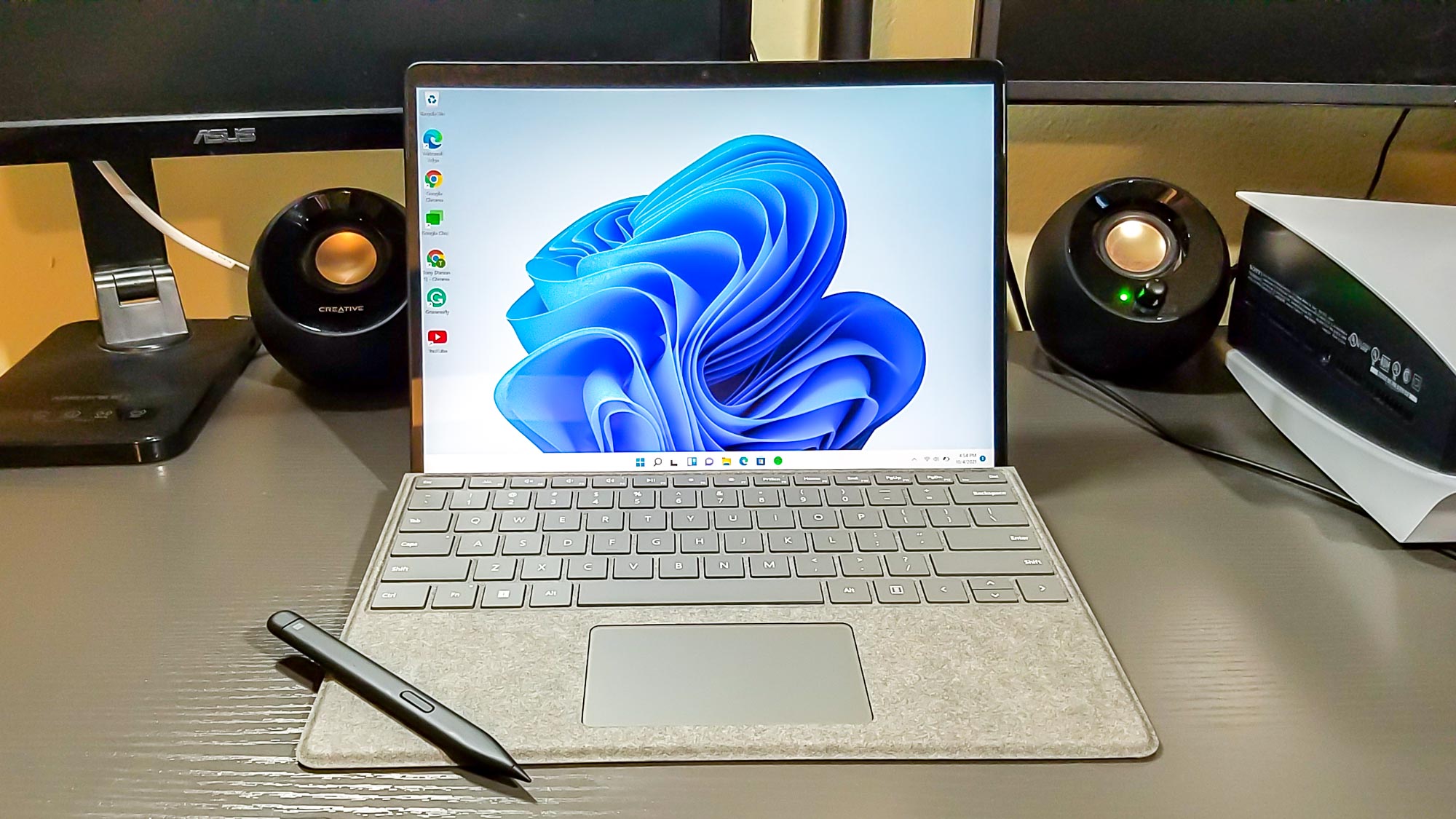
The Graphite model comes in only four configurations at the time of this writing. This includes a $1,199 model with an Intel Core i5, 8GB of RAM and 256GB SSD on the lower end. The most expensive model costs $1,899 and sports an Intel Core i7, 16GB of RAM and 512GB SSD.
Similar to the iPad Pro’s accessories, the Surface Slim Pen 2 and Surface Pro Signature keyboard are not included with the Surface Pro 8. The pen costs $129 while the keyboard costs $179.
Top-end model aside, the Surface Pro 8 is cheaper all around, even with accessories included. It would have been preferable if both tablets came with said accessories because of their usefulness. Each slate can double as a decent laptop, but that’s only possible via their respective keyboards.
iPad Pro vs Surface Pro 8: Design
The iPad Pro 2021 is a gorgeous sliver of machined aluminum, with thin bezels outlining the display. It looks nearly identical to the 2020 iPad Pro and iPad Air models (the latter has a smaller camera bump, and is only available in a 10.9-inch size).
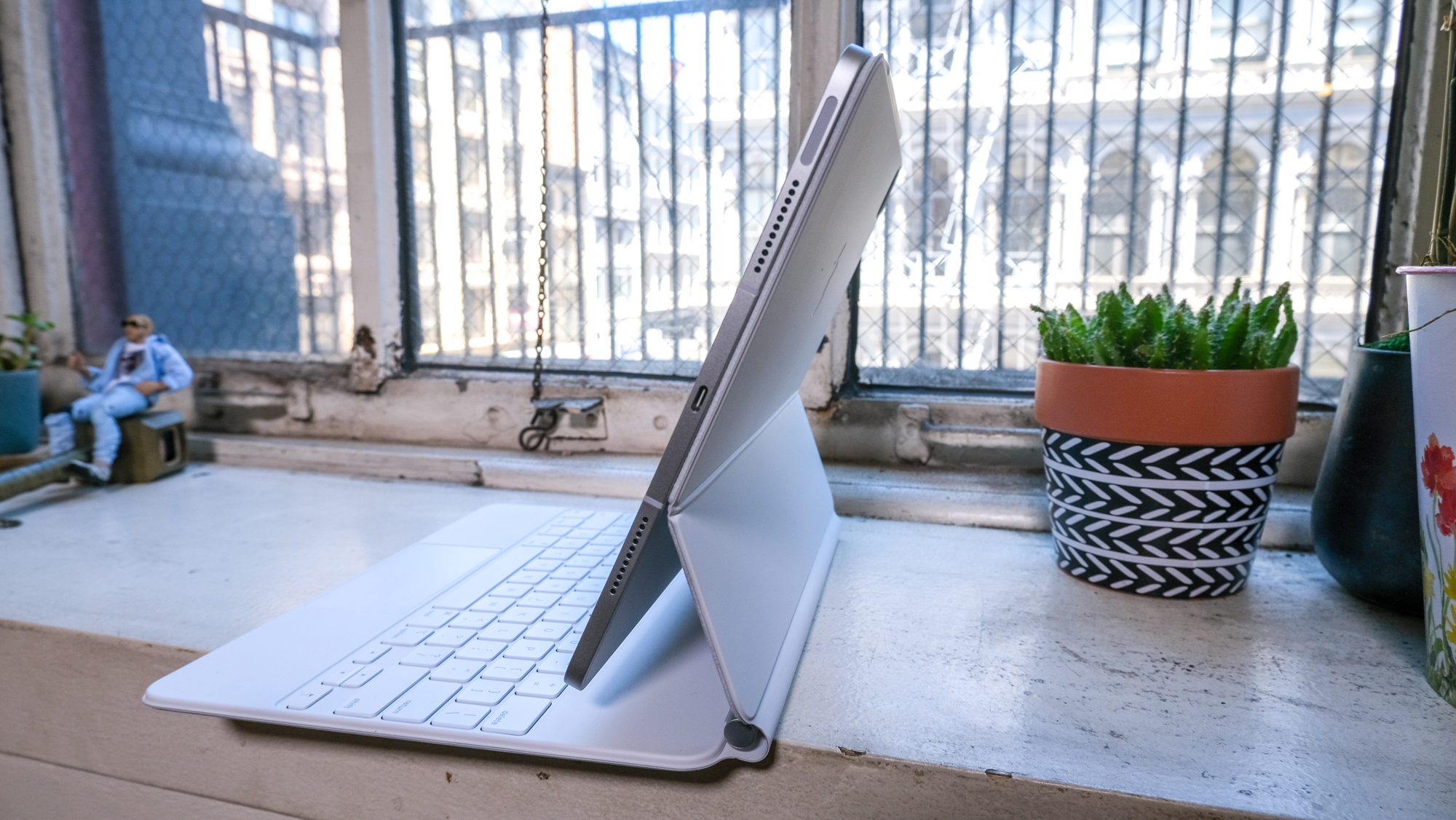
Apple only makes the iPad Pro 2021 in silver and Space Gray, a rather limited range when you see the brighter colors of the iPad Air 2020 (which is available in green, blue and rose gold).
Measuring 11.04 x 8.46 x 0.25 inches and weighing 1.5 pounds, the iPad Pro 2021 is a hair thicker than the 2020 version (11.04 x 8.46 x 0.23-inch, 1.4 pounds) and the Galaxy Tab S7 Plus (11.22 x 7.28 x 0.22 inches, 1.3 pounds). This means most bags and sleeves will still fit, but it's slightly too thick to fit perfectly in the iPad Pro Magic Keyboard for the previous year's model.
The 12.9-inch iPad Pro's weight goes up to 3 pounds when you attach its Magic Keyboard — that puts it in MacBook Pro 2020 (3.1 pounds) and Dell XPS 13 (2.9 pounds) territory, making it somewhat less portable. The 11-inch iPad Pro is a bit lighter with its keyboard, at 2.4 pounds. The docked Galaxy Tab S7 Plus is also lighter, at 2.5 pounds.
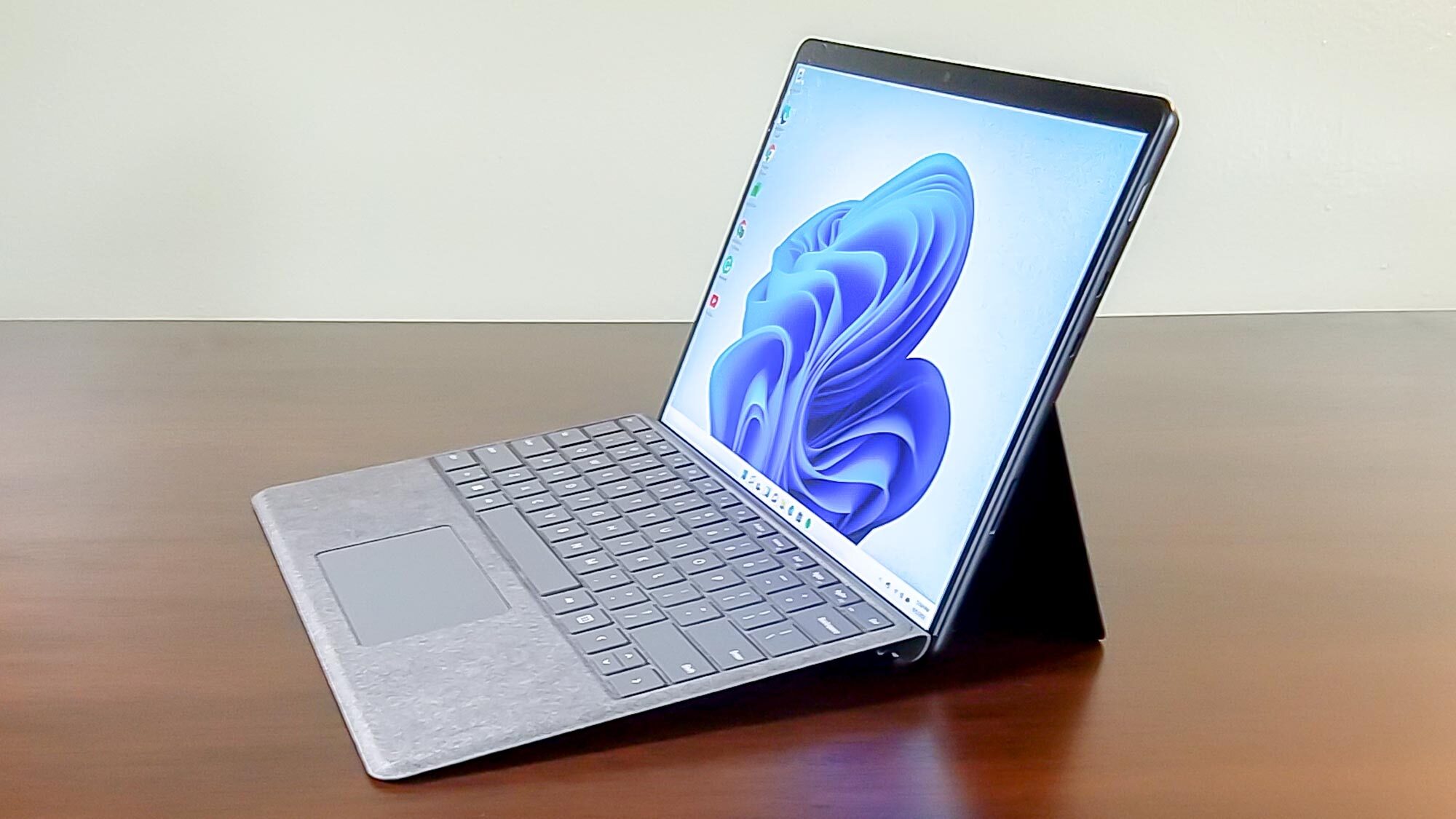
At 11.3 x 8.2 x 0.37 inches and 1.96 pounds, the Surface Pro 8’s small and light design makes it a suitable portable device. The dark anodized aluminum casing is not only eye-pleasing, but it makes the 2-in-1 feel tough and sturdy. The back of the unit has a glossy silver Microsoft logo on the kickstand. You can lift the kickstand via the two indentations on either side of the unit. This is also how you’ll access the removable SSD. There’s a webcam on the back and another on the front.
The bottom of the Surface Pro 8 has a connector for the Surface Pro Signature or Surface Pro X keyboards, which snap magnetically onto the Surface Pro 8. Thinner bezels give the new device an 11% larger display than the Surface Pro 7.
Both tablets have comparable weight and sizes, making them ideal portable devices. They look great, whether you’re carrying them around or if you have them sitting on a desk.
iPad Pro vs Surface Pro 8: Display
When looking at the brightness outputs of the iPad Pro 2021, we did two rounds of testing: once on HDR and again with non-HDR content. Our light gun registered an average of 563 nits of brightness for non-HDR content, which is similar to the scores from the 571.3-nit 11-inch iPad Pro 2021 and the iPad Pro 2020 (559 nits). It's also brighter than the panel in the iPad Air 2020 (440 nits) and the 430-nit Super AMOLED panel in the Galaxy Tab S7 Plus.
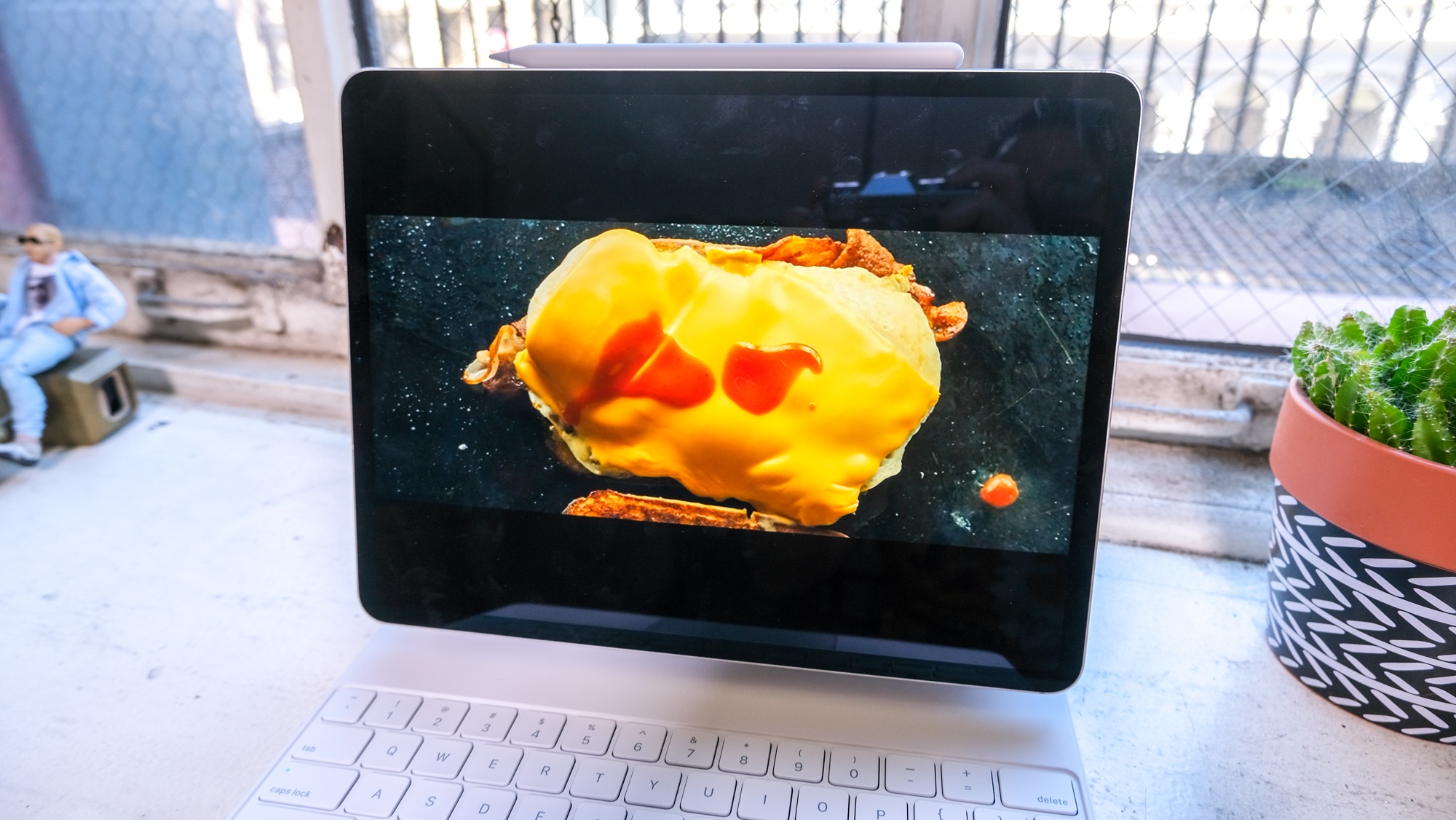
Since the iPad Pro's XDR screen uses local dimming zones for its 1,000,000:1 contrast ratio, we looked at how bright smaller regions of the display would get, and the results were astounding. 10% and 40% portions of the iPad Pro 2021's display rated at 1582 and 1588 nits, respectively, while the full-screen HDR brightness hit 1251 nits.
For color output, the iPad Pro 2021 is still similar to previous models, producing 114.9% of the sRGB gamut (the 11-inch model hit a close 113.1% mark). That's slightly more colorful than the 102.9% rating from the iPad Air, and a little lower score than what the iPad Pro 2020 (122.9%) got.
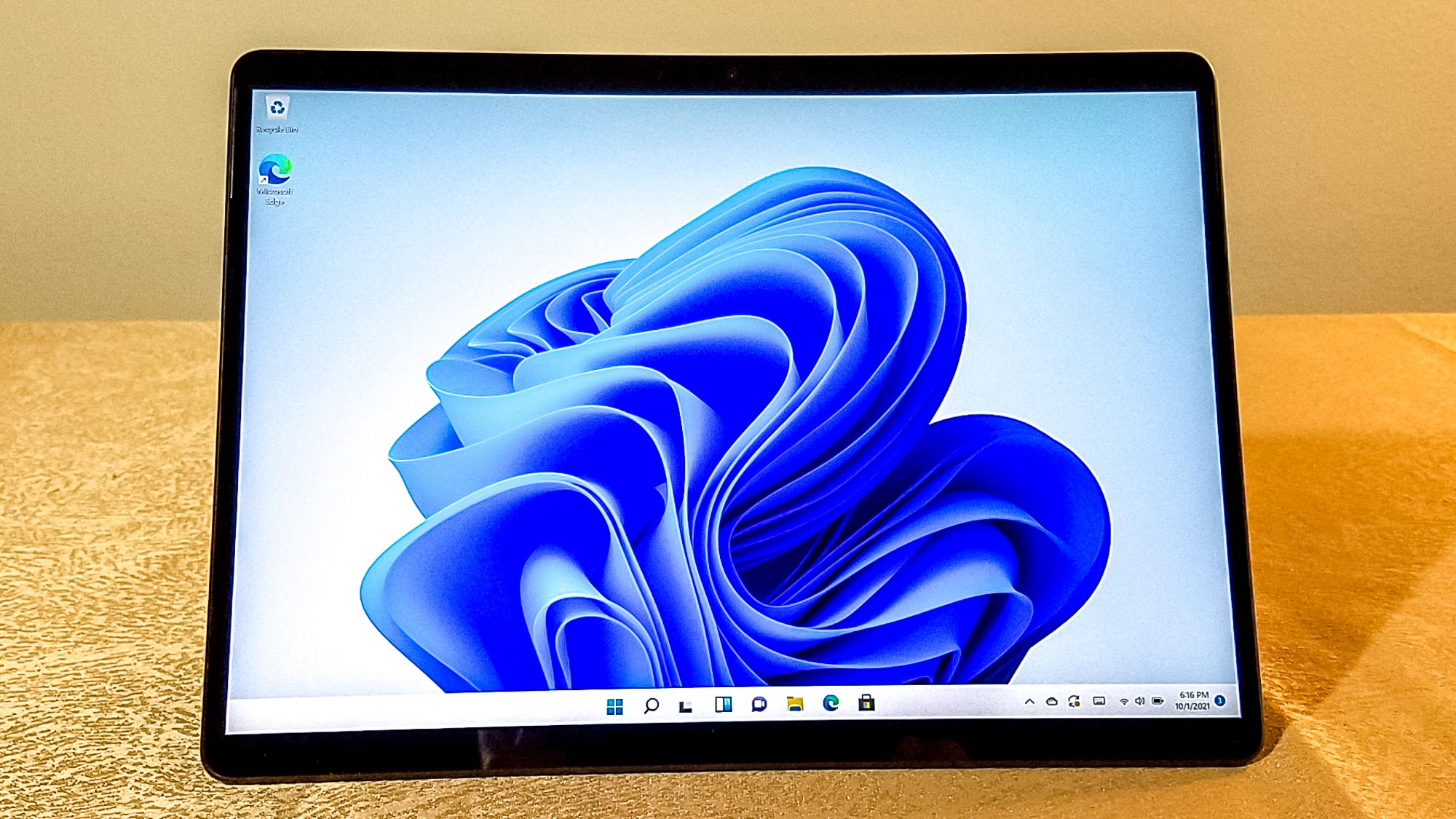
The Surface Pro 8 has a 13-inch PixelSense touchscreen display with a 2880 x 1920 pixel resolution and a 120Hz refresh fate. It also sports Dolby Vision and Adaptive Color technology.
Based on our testing, the display achieves an average of 452.8 nits and hits 444 nits around the center of the screen. This is close to the peak 450 nits Microsoft advertises for the Surface Pro 8. Images come through clearly in both bright and dimly-lit environments.
The Surface Pro 8's screen achieved 103.7% of the sRGB color gamut and 71.9% of the DCI-P3 color gamut in our colorimeter test. Colors pop and it’s easy to see small details in streamed video content, video games, and just about everything else.
The iPad Pro's XDR display makes it the stand-out winner in this category. The Surface Pro 8's screen isn't terrible on its own, but it simply can't compete with the iPad Pro's gorgeous display.
iPad Pro vs Surface Pro 8: Performance
The Apple M1 chip in the iPad Pro 2021 is super-fast, which makes using the device feel smoother than ever. Splitting the screen between 13 Safari tabs and a 1080p/60fps YouTube video during our review, then pulling up a folder of high-res HDR art via slide-over didn't cause any hiccups.
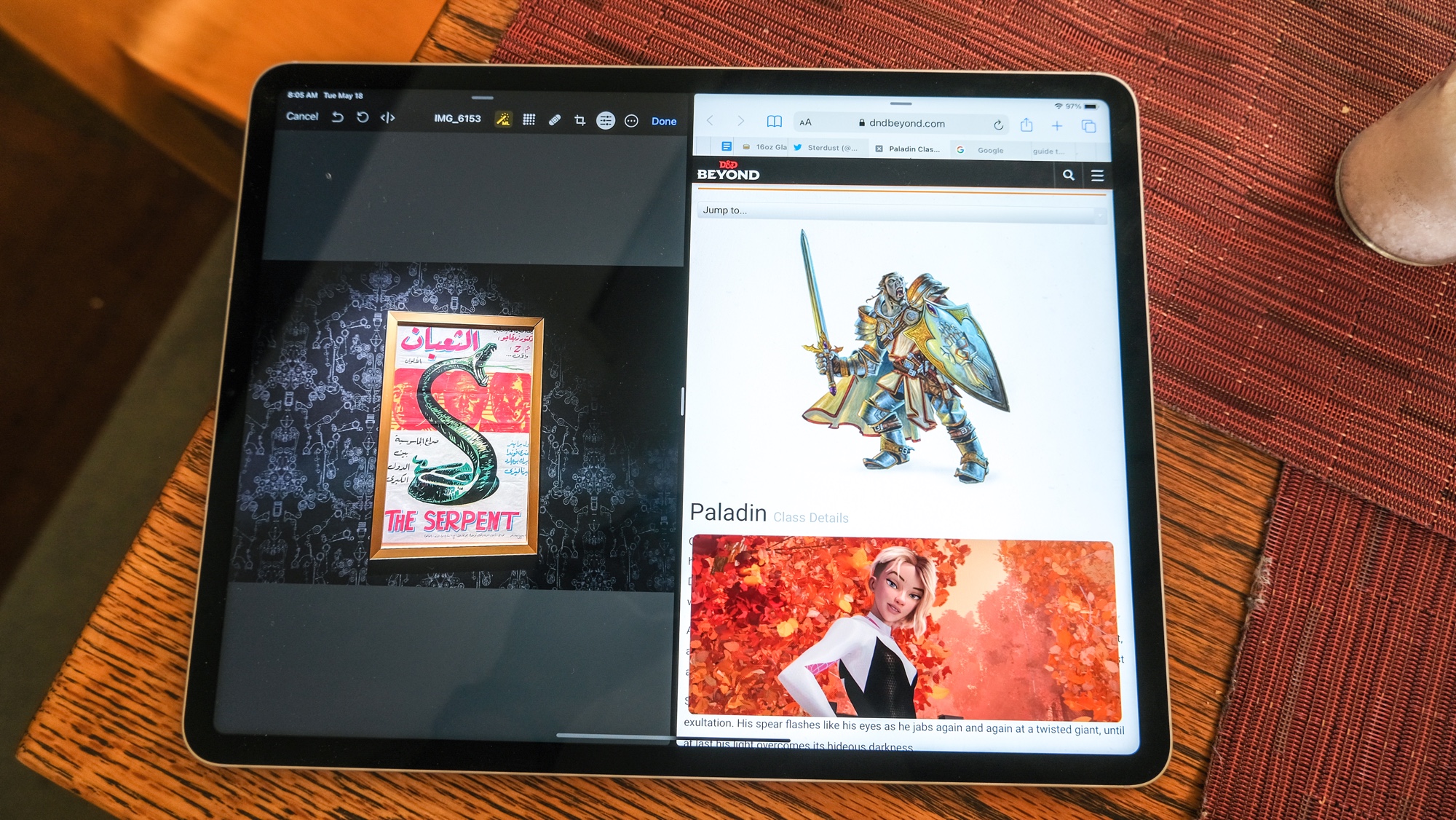
On the Geekbench 5 benchmark test, the 12.9 inch iPad Pro 2021 pulled in a score of 7,298. That's a huge leap past the 4,262 from the iPad Air 2020 (A14 Bionic) and the 4,720 from the iPad Pro 2020. The Galaxy Tab S7 Plus (Qualcomm Snapdragon 865+) landed a much lower 2,910.
In terms of pro-level apps, the M1 took another win on our Adobe Premiere Rush test, where we add a color filter and transition to a 4K video, and then export it at 1080p and 30fps. The iPad Pro 2021 finished this in 22 seconds, beating the 34-second time from the iPad Pro 2020 and the 27.2-second time from the iPad Air.
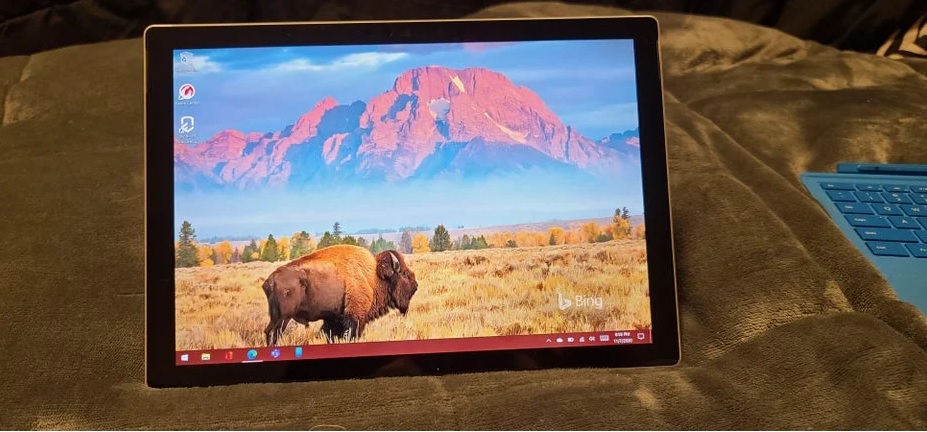
Our Surface Pro 8 review unit came with an 11th Gen Intel i7-1185G7 processor and 16GB of RAM. Browsing the web, watching YouTube videos or listening to Spotify never made this Windows 11 tablet buckle during our tests.
The Surface Pro 8 scored 5,347 on the Geekbench 5.4 overall performance test. This is lower than the Dell XPS 13 laptop we reviewed last year, which scored 5,639, and nowhere near the M1-powered 2021 iPad Pro's score of 7,298.
So while both tablets are powerful enough to handle pretty much anything you care to do with them, Apple's 2021 iPad Pro wins out in the performance department.
One important caveat here: the iPad runs iPadOS, while the Surface Pro 8 runs Windows 11. These operating systems have different demands and excel at different things. If you care about gaming performance, the Surface Pro 8 may be a better choice because it can (theoretically) run any game that runs on Windows, while the iPad is limited to what's available via Apple's App Store.
iPad Pro vs Surface Pro 8: Cameras
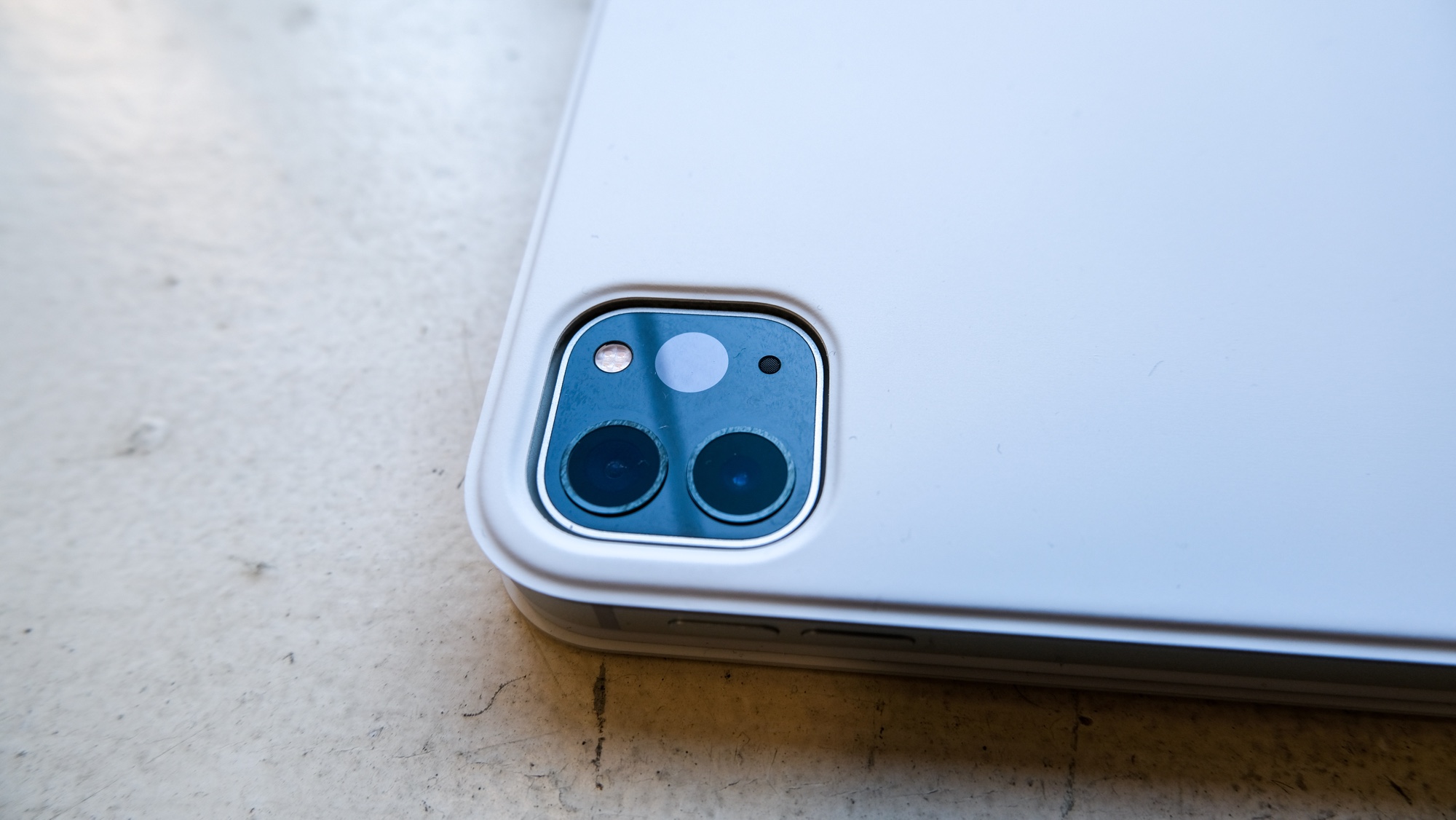
Cameras in tablets have never been a star feature, but the iPad Pro 2021 changes things a bit here, too. The iPad Pro 2021 reflects the changing world, as its front-facing 12MP TrueDepth camera is crisp enough for the video conferencing era — and its Center Stage feature will help make meetings more fluid, keeping your face on camera as you move.
Like its predecessor, the Surface Pro 8 features a 5MP front-facing camera. The camera produces detail-rich images if you snap photos anywhere with decent lighting. Even if your lighting situation is less than ideal, the camera still produces a clear image. The 10MP rear-facing camera impresses more than the front-facing camera, delivering higher-quality images.
Taking pictures with tablets will always be awkward, but if you’re one of the folks who love using your slate to snap pictures, the iPad Pro’s 12MP cameras will produce better images compared to those of the Surface Pro 8 – though the latter’s 10MP camera is certainly no slouch.
iPad Pro vs Surface Pro 8: Battery
The 12.9-inch iPad Pro 2021 has impressive battery life. Our web-surfing-based test took 10 hours and 48 minutes to drain it of a full charge. That's close to the time from the iPad Air 2020 (10:29), while beating the iPad Pro 2020 (10:16) by over half an hour. The Galaxy Tab S7 Plus (8:51) lasted even less time.
The same battery test concluded that the Surface Pro 8 lasts for 9 hours, 6 minutes and 33 seconds (at 60Hz). You'll likely get a bit less from either tablet in day-to-day use, especially if you're playing games or doing demanding work.
Apple's tablet is the clear winner here, and if battery life is a priority for you, the iPad Pro will not disappoint.
iPad Pro vs Surface Pro 8: Optional keyboards
As mentioned above, you’ll need to purchase optional keyboards to use both the iPad Pro and Surface Pro 8 in their respective laptop modes.
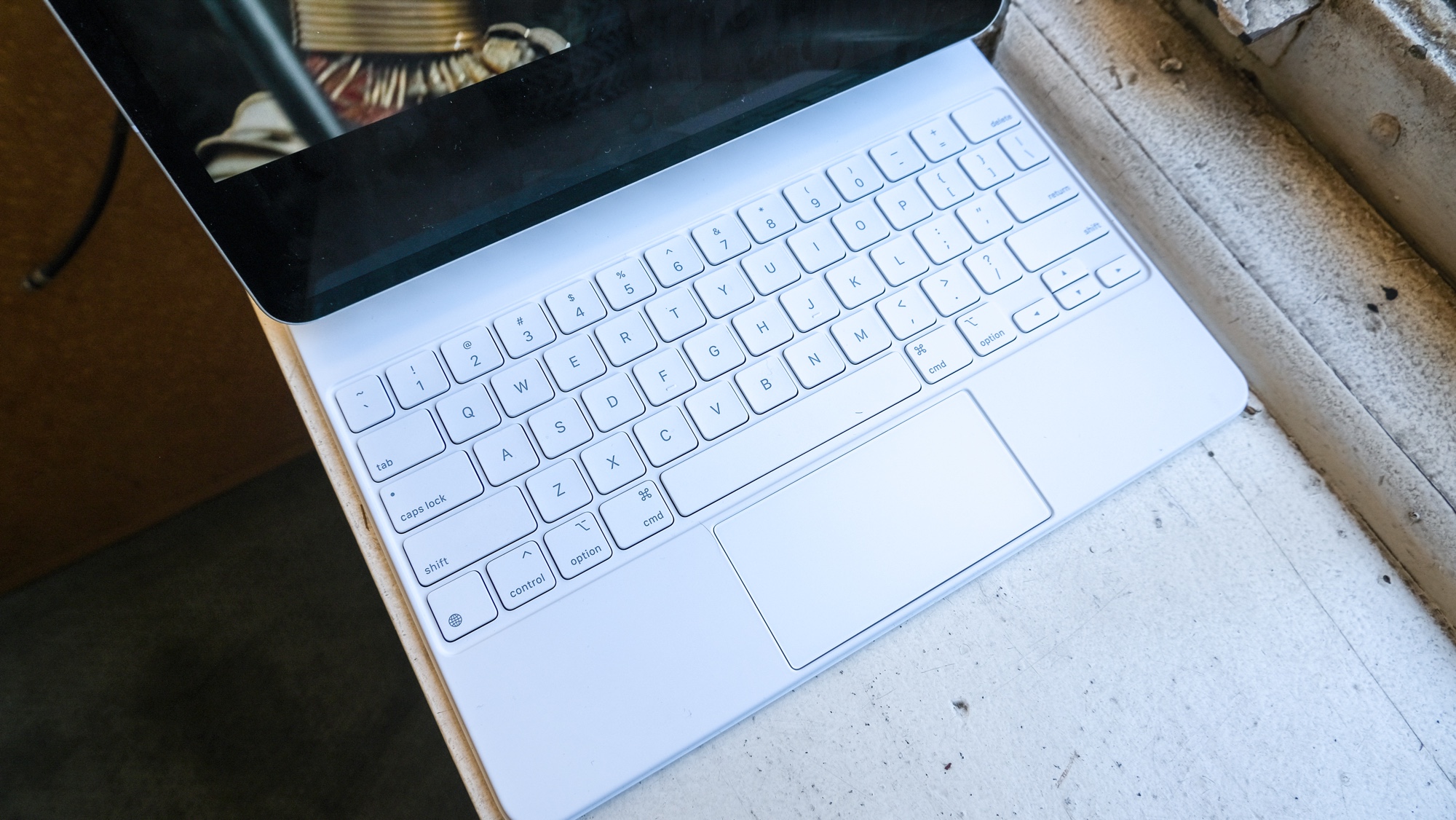
If you have money to burn, then this won’t be a problem. But if you’re the average user, then having to shell out a couple of hundred extra dollars for necessary accessories will sting.
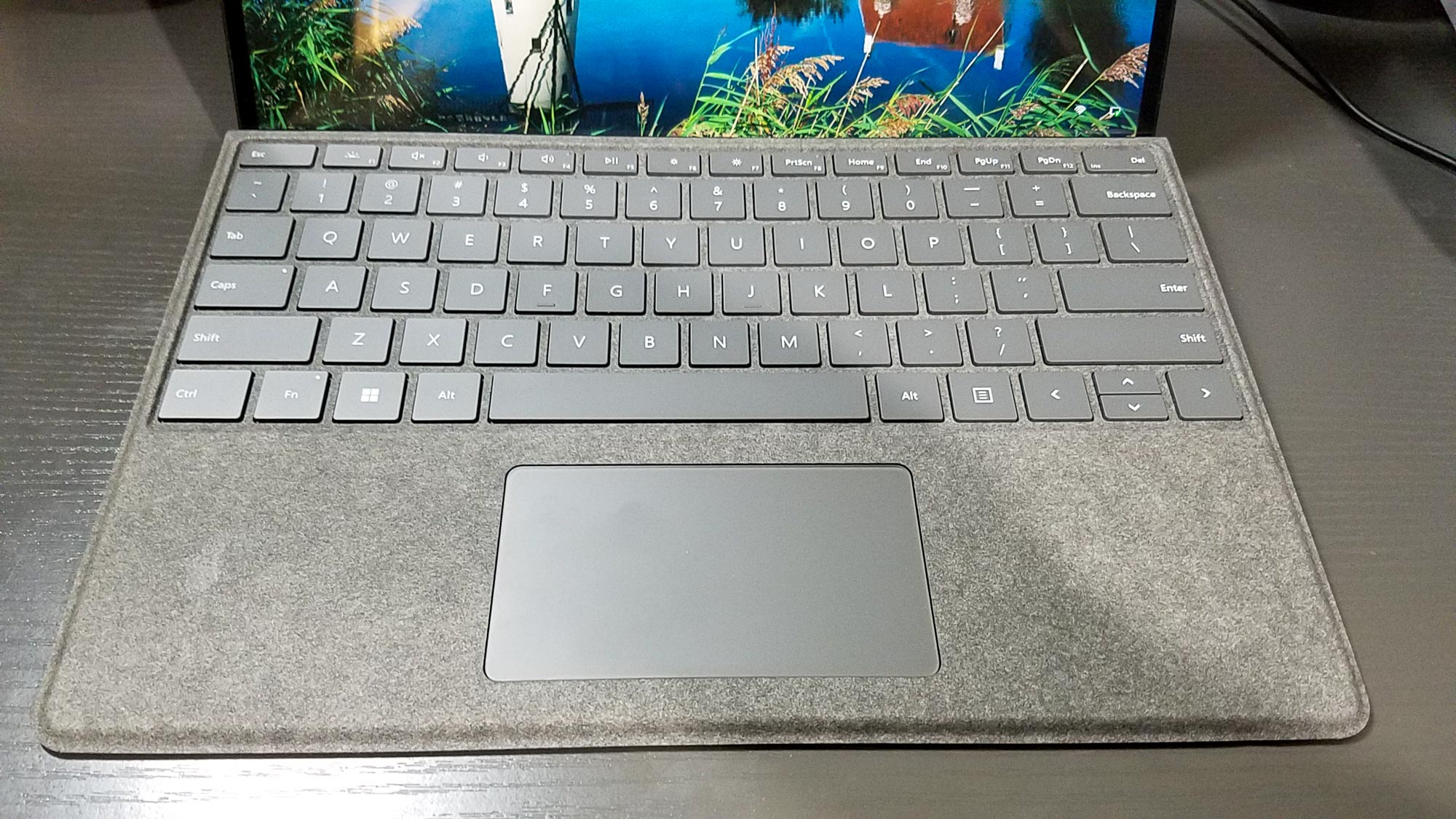
The Magic Keyboard costs $349 compared to the Pro Signature keyboard’s $179 asking price. Admittedly, the Magic Keyboard is the better of the two due to its sturdier build. The Signature keyboard is decent enough if you have a light touch, but those who type harder may find it flimsy.
iPad Pro vs Surface Pro 8: Verdict
By most metrics, the iPad Pro is superior to the Surface Pro 8. It’s lighter, has longer battery life, better cameras and features a more vibrant display. Aside from not including the Magic Keyboard, we have few complaints to lobby against Apple's M1-powered tablet. It's a significant improvement over the 2020 model and is the best slate the company has produced so far.
Though the iPad Pro excels as a tablet, the Surface Pro 8 works well as both a tablet and laptop. This is due to Windows 11, which functions great on PCs and is extremely touch-friendly. Of the two slates, it is the most suited to perform as a laptop. Yes, you still need to buy an optional keyboard, but at least the accessory’s asking price is almost half of the Magic Keyboard’s.
So which one of these tablets should you buy? It depends on what you’re looking for. If you don’t care about using your slate as a laptop and just want the very best tablet available, then the iPad Pro is your best bet. However, if you want a 2-in-1 that provides a decent tablet and laptop experience, then the Surface Pro 8 might be better for you.
Sign up to get the BEST of Tom's Guide direct to your inbox.
Get instant access to breaking news, the hottest reviews, great deals and helpful tips.

Tony is a computing writer at Tom’s Guide covering laptops, tablets, Windows, and iOS. During his off-hours, Tony enjoys reading comic books, playing video games, reading speculative fiction novels, and spending too much time on X/Twitter. His non-nerdy pursuits involve attending Hard Rock/Heavy Metal concerts and going to NYC bars with friends and colleagues. His work has appeared in publications such as Laptop Mag, PC Mag, and various independent gaming sites.
